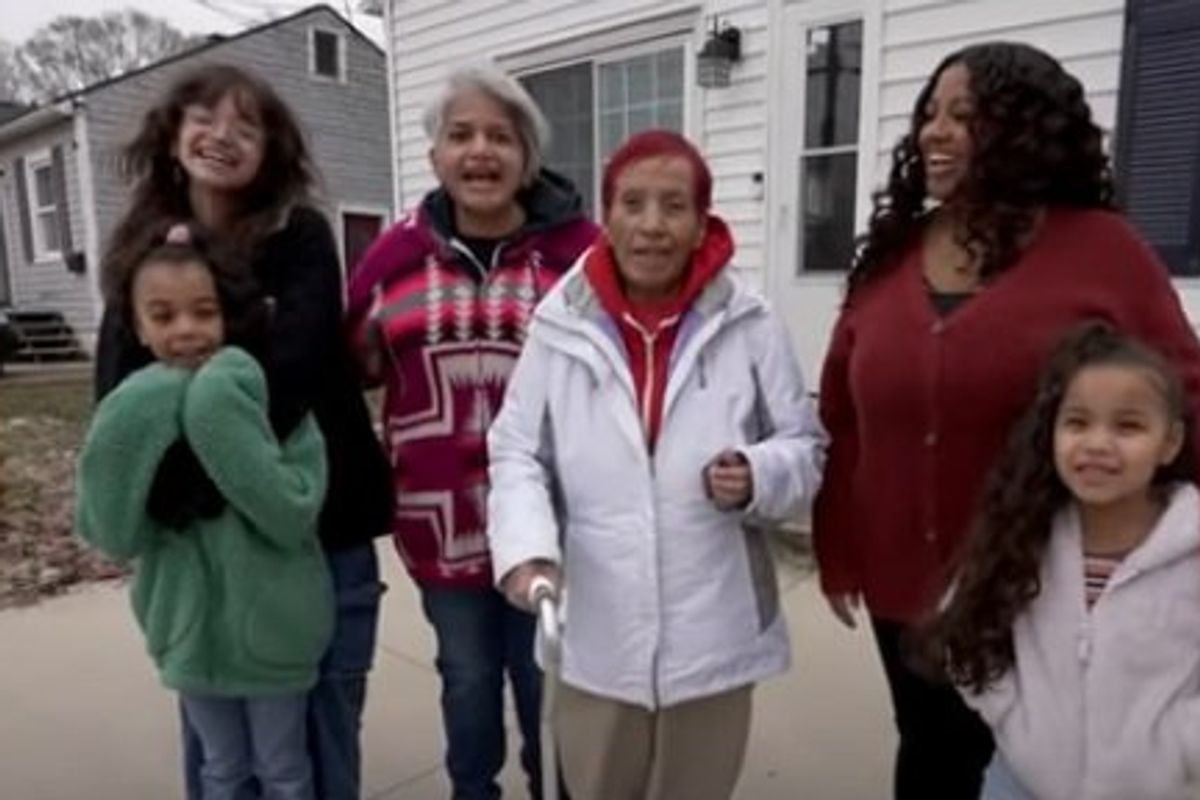A family of four generations is living in one house and absolutely loving it
"We're forced to be together, we're forced to have family dinners, which is beautiful."

Lowe Family
Some people can't wait to fly the coop. At 18, their bags are packed and, while they may very well love their families, the idea of living with them any longer is simply not tenable.
But others are glued by a bond so tight they stay warmly in the nest. For many, it begins as a financial decision. Discover reports, "The United States Census Bureau found that in 2023, the median gross rent was $1,406 across American households." Those costs continue to rise, with home mortgages often even higher.
Six years ago, financial adviser Dave Ramsey shared the statistic that "one in three adults are still living with their parents, three times as many as in 1970." Ramsey doesn't seem to approve of this figure. But according to a study by Pew Research Center, they have a different angle: "Multigenerational living has grown sharply in the U.S. over the past five decades and shows no sign of peaking." And although those stats remain in 2025 for adults between the ages of 18 and 34, not everyone agrees with Dave Ramsey that it's something to be ashamed about.

One family in Grand Rapids, Michigan decided that having four generations living under one roof is beneficial for many reasons—not just financial. Exemplifying a trend that's on the rise, the Lowe family initially made the choice to "prioritize stability." But, according to a piece for Good Morning America, they later realized what a wonderful advantage it brought all around.
- YouTubewww.youtube.com
Jade Lowe is 29 with three kids. They all live with her mother and 84-year-old grandmother. Nicole Curtis reports that Jade wouldn't have it any other way: "Between my grandma, my mom and my sister, they kind of all just, like, help out. And the price of rent—I pay my mom a portion versus having my own mortgage."
In the Good Morning America clip, Jade points out a black and white photo of her grandmother. "This is my grandmother at the age of 22 with her husband." Over 60 years later, all three generations under her grandmother have the joy of sharing a tight-knit life together.
Pew Research also notes, "A quarter of adults in multigenerational households say caregiving actually is occurring in their homes, either in the form of personal care for another adult in the household or care for a child younger than 18 who is not the caregiver’s own child."
Jade's mother, Gema, emphasizes how important the familial bond can be. "That knowledge that goes from generation to generation can also break down barriers to absorb, and every generation is getting better. We just don't think about ourselves. We think as a group, as a collective."

Jade agrees wholeheartedly. "It allowed me to still live my best life in my 20s. It allowed me to honestly just be happy and not have to worry about those extra expenses."
What's more is the time the living arrangement allows with her loved ones which, some could argue, is the most sacred of all currency. "We kind of bring those differences together under one roof. It is crucial to unite right now in today's climate. I think that just being under one household helps us with that. We're forced to be together, we're forced to have family dinners, which is beautiful."
A commenter on YouTube reminds people that this was once the norm: "This is not a growing trend. It’s something that is coming back. My family grew up in a multigenerational household from the 1940s-2000s. That’s how we survived in San Francisco. I am glad it’s returning. Oldie and goodie."
As far as the Lowe family goes, "Six women all under one roof isn't always easy"—but they make it work and they make it clear that its a situation they cherish.
- Gen X is being labeled 'Silver Squatters' for their retirement plan. Is that a fair assessment? ›
- Let's Do More Together - Upworthy ›
- 82-year-old man chooses to stay in his multi-million dollar mansion ... ›
- Man moves in with squatters who won't leave his new home - Upworthy ›
- Husband who lost his job reluctantly moves family in with mother-in-law. Pure joy ensued. - Upworthy ›



 A Generation Jones teenager poses in her room.Image via Wikmedia Commons
A Generation Jones teenager poses in her room.Image via Wikmedia Commons




 A woman getting her nails painted.via
A woman getting her nails painted.via 
